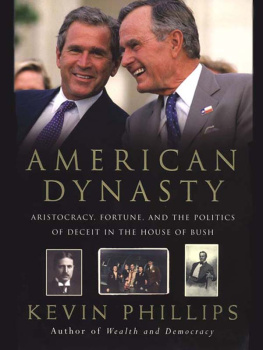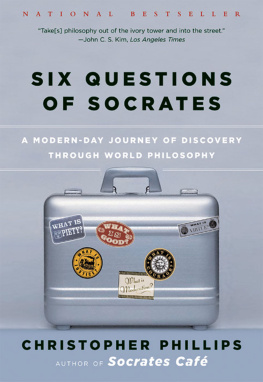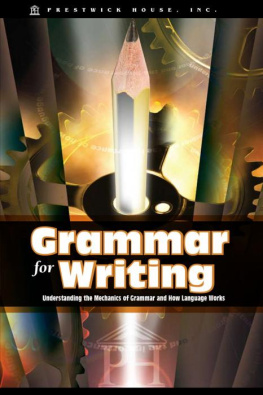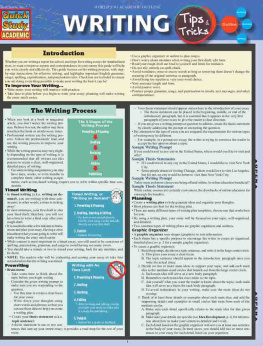VIKING
Published by the Penguin Group
Penguin Group (USA) Inc., 375 Hudson Street,
New York, New York 10014, U.S. A.
Penguin Books Ltd, 80 Strand, London WC2R 0RL, England
Penguin Books Australia Ltd, 250 Camberwell Road, Camberwell, Victoria 3124, Australia
Penguin Books Canada Ltd, 10 Alcorn Avenue, Toronto, Ontario, Canada M4V 3B2
Penguin Books India (P) Ltd, 11 Community Centre, Panchsheel Park, New Delhi110 017, India
Penguin Books (N.Z.) Ltd, Cnr Rosedale and Airborne Roads, Albany, Auckland, New Zealand
Penguin Books (South Africa) (Pty) Ltd, 24 Sturdee Avenue, Rosebank, Johannesburg 2196, South Africa
Penguin Books Ltd, Registered Offices: 80 Strand, London WC2R 0RL, England
First published in 2004 by Viking Penguin, a member of Penguin Group (USA) Inc.
Copyright Kevin Phillips, 2004
All rights reserved
American dynasty : aristocracy, fortune, and the politics of deceit in the house of Bush / Kevin Phillips.
p. cm.
Includes index.
ISBN 978-1-1012-0080-3
Set in Minion
Designed by Francesca Belanger
Without limiting the rights under copyright reserved above, no part of this publication may be reproduced, stored in or introduced into a retrieval system, or transmitted, in any form or by any means (electronic, mechanical, photocopying, recording, or otherwise), without the prior written permission of both the copyright owner and the above publisher of this book.
The scanning, uploading, and distribution of this book via the Internet or via any other means without the permission of the publisher is illegal and punishable by law. Please purchase only authorized electronic editions and do not participate in or encourage electronic piracy of copyrighted materials. Your support of the authors rights is appreciated.
First edition (electronic): February 2004
Making or distributing electronic copies of this book constitutes copyright infringement and could subject the infringer to criminal and civil liability.
ALSO BY KEVIN PHILLIPS
Wealth and Democracy
The Cousins Wars
Arrogant Capital
Boiling Point
The Politics of Rich and Poor
Staying on Top
Post-Conservative America
Electoral Reform and Voter Participation
Mediacracy
The Emerging Republican Majority
To the memory of President Dwight D. Eisenhower, whose words in his 1961 farewell address once again demand attention and respect:
This conjunction of an immense Military Establishment and a large arms industry is new in the American experience. The total influenceeconomic, political, even spiritualis felt in every city, every statehouse, every office of the Federal Government. We recognize the imperative need for this development. Yet we must not fail to comprehend its grave implications....
In the councils of government we must guard against the acquisition of unwarranted influence, whether sought or unsought, by the military-industrial complex. The potential for the disastrous rise of misplaced power exists and will persist.
We must never let the weight of this combination endanger our liberties or democratic processes. We should take nothing for granted.
Only an alert and knowledgeable citizenry can compel the proper meshing of the huge industrial and military machinery of defense with our peaceful methods and goals so that security and liberty may prosper together.
January 17, 1961
T his book has changed a lotin length, indignation, and its hitherto unpublished informationsince I began writing it in December 2002. My original ambition was to identify and explain the Bush-related transformation of the U.S. presidency into an increasingly dynastic office, a change with profound consequences for the American Republic, given the factors of family bias, domestic special interests, and foreign grudges that the Bushes, father and son, brought into the White House.
Unfortunately, in examining two Bush presidencies and the familys four-generation pursuit of national prominence and powerand in doing so through a lens that highlighted elite associations, dynastic ambitions, and recurring financial and business practicesI found a greater basis for dismay and disillusionment than I had imagined. The result is an unusual and unflattering portrait of a great family (great in power, not morality) that has built a base over the course of the twentieth century in the back corridors of the new military-industrial complex and in close association with the growing intelligence and national security establishments. In doing so, the Bushes have threaded their way through damning political, banking, and armanents scandals and, since the 1980s, controversies like the October Surprise, Iran-Contra, and Iraqgate imbroglios, which in another climate or a different time might have led to impeachment.
I am not talking about ordinary lack of business ethics or financial corruption. During the late twentieth century, several other presidents and their families displayed these shortcomings, and the public has become understandably blas. Four generations of building toward dynasty, however, have infused the Bush familys hunger for power and practices of crony capitalism with a moral arrogance and backstage disregard of the democratic and republican traditions of the U.S. government. As we will see, four generations of involvement with clandestine arms deals and European and Middle Eastern rogue banks will do that.
American Dynasty is on the one hand a book about economics, history, and politics in the era that covers the two Bush presidencies. But it is also a portrait of four Bush (and Walker) generationstheir ambitions, financial practices, scandals, and wars. It brings into focus many circumstances and relationships that have not previously been examined together and seriously discussed, for reasons that are both unusual and unfortunate. During the late 1970s and 1980s, the Bush clan in a sense flew under the radar of critical biography and investigation. The first two published biographies of George H. W. BushGeorge Bush: A Biography (1980) by Nicholas King, a former Bush press secretary, and George Bush: An Intimate Portrait (1989) by Fitzhugh Green, a CIA-connected Bush social chumwere friendly treatments that had no room for warts. Neither did the 1991 Flight of the Avenger sequence of books lionizing his record in World War II. Unfortunately, this puffery managed to preempt more serious book-length exploration.
The first major objective study, Marching in Place (1992), by Time reporters Dan Goodgame and Michael Duffy, dwelt critically on his 198992 presidential record but came out too late to affect the political climate that defeated Bush in 1992, and it got little attention. George Bush: The Unauthorized Biography, published in 1992 by allies of Bush-hating Lyndon LaRouche, tended to submerge its massive, and often revelatory, research in snowdrifts of paranoia, and no serious readers or reviewers gave it much credence.
By 2000, naturally, biographies of the younger Bush, even critical ones, devoted little attention to anything other than his own career. Thus the first three generations of the family escaped multidimensional and skeptical scrutiny, save for a professional, but essentially friendly, biography by historian Herbert Parmet entitled George Bush: The Life of a Lone Star Yankee (1997). Now that the Bushes have become a presidential dynasty, for however long, they will command more probing attention, but the national interest would have been better served had that occurred in the 1970s.
Few have looked at the facts of the familys rise, but just as important, commentators have neglected the threadnot the mere occasionof special interests, biases, scandals (especially those related to arms dealing), and blatant business cronyism. The evidence that accrues over four generations is extraordinarily damning. This is especially true of the Bushes ties to the Wall Street financial world and the military-industrial complex.
















